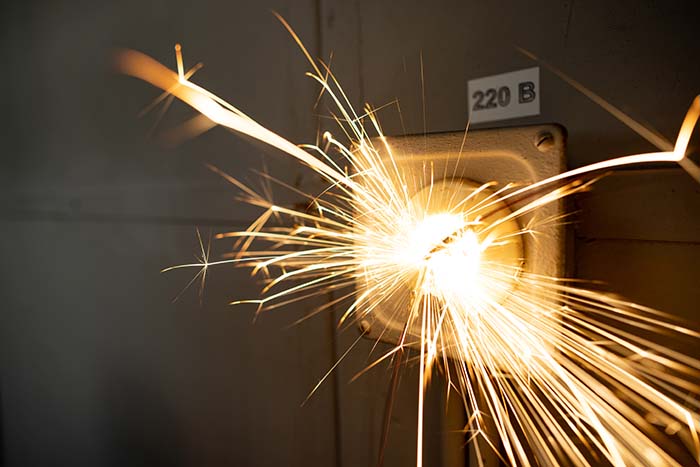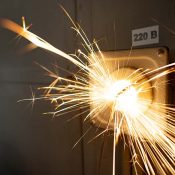
Electrical Hazards
The Danger of Electrical Shorts: Protecting Your Home and Loved Ones
Introduction: Understanding the Risk of Electrical Shorts
Electrical systems are an integral part of our modern homes, powering everything from lights to appliances. However, alongside the convenience they provide, there is also a hidden danger - the risk of electrical shorts. This article aims to shed light on the danger posed by electrical shorts, how to identify and prevent them, and the importance of seeking professional help for electrical issues.
What is an Electrical Short?
An electrical short, also known as a short circuit, occurs when a path of low resistance is created between two conductive surfaces that should not be connected. This results in an abnormal flow of electrical current, leading to potential hazards such as overheating, electrical fires, or electrocution.
The Consequences of Ignoring Electrical Shorts
Ignoring electrical shorts can have severe consequences, both in terms of safety and the integrity of your home's electrical system. Here are some potential risks:
- Fire Hazards: Electrical shorts create excessive heat, which can ignite nearby flammable materials and lead to devastating fires.
- Electrical Damage: The sudden surge of current during a short circuit can damage electrical equipment, appliances, and wiring in your home. This can be costly to repair or replace.
- Personal Injury: Electrical shorts increase the risk of electrocution, posing a serious threat to the safety of your loved ones and yourself.
How to Identify and Prevent Electrical Shorts
Being aware of the signs of electrical shorts and taking preventive measures is crucial for maintaining a safe living environment. Here's what you should know:
Signs of Electrical Shorts
- Frequent Circuit Breaker Tripping: If your circuit breaker frequently trips or fuses blow, it may indicate the presence of an electrical short.
- Unusual Electrical Smells: A strong burning odor or the smell of melted plastic near electrical outlets or switches can be a sign of an electrical short.
- Flickering Lights: Constantly flickering or dimming lights may be an indication of an underlying electrical issue, including shorts.
Common Causes of Electrical Shorts
Understanding the common causes of electrical shorts can help you identify potential hazards and take preventive measures:
- Faulty Wiring: Aging or improperly installed wiring can lead to electrical shorts. This is especially true in older homes where the electrical system may not meet current safety standards.
- Overloaded Circuits: Overloading electrical circuits with too many appliances or power-hungry devices can create excessive heat and increase the risk of electrical shorts.
- Damaged or Faulty Outlets and Switches: Loose or damaged outlets and switches can create unstable connections, increasing the likelihood of electrical shorts.
Preventive Measures to Safeguard Your Home
Taking proactive steps to prevent electrical shorts is essential for the safety and well-being of your home and family. Consider the following preventive measures:
- Regular Electrical Inspections: Schedule routine inspections by a licensed electrician to identify and address potential electrical hazards, including shorts.
- Upgrading Your Wiring: If you live in an older home, consider rewiring or upgrading your electrical system to meet current safety standards.
- Limiting Electrical Load: Avoid overloading circuits by spreading electrical devices across different outlets and using power strips with built-in surge protection.
- Outlet and Switch Maintenance: Check regularly for loose connections, cracked plates, or signs of damage. Replace faulty outlets and switches promptly.
The Importance of Professional Help
While some electrical issues might seem manageable, it is important to seek professional help to ensure the safety and integrity of your home's electrical system. Licensed electricians have the expertise, experience, and equipment to diagnose and rectify electrical shorts effectively. Attempting DIY repairs or ignoring the problem may exacerbate the risk and cost you more in the long run.
Conclusion: Prioritizing Safety and Peace of Mind
Electrical shorts pose a significant danger to homes and the well-being of occupants. By being aware of the signs of electrical shorts, understanding their causes, and taking preventive measures, you can reduce the risk of potential hazards. Remember, when it comes to electrical safety, seeking professional assistance is always the best course of action. Prioritize safety, protect your home, and enjoy peace of mind. Stay vigilant, and ensure your home remains safe from the danger of electrical shorts. Feel free to call one of inspectors at Proven Choice Home Inspection today!




